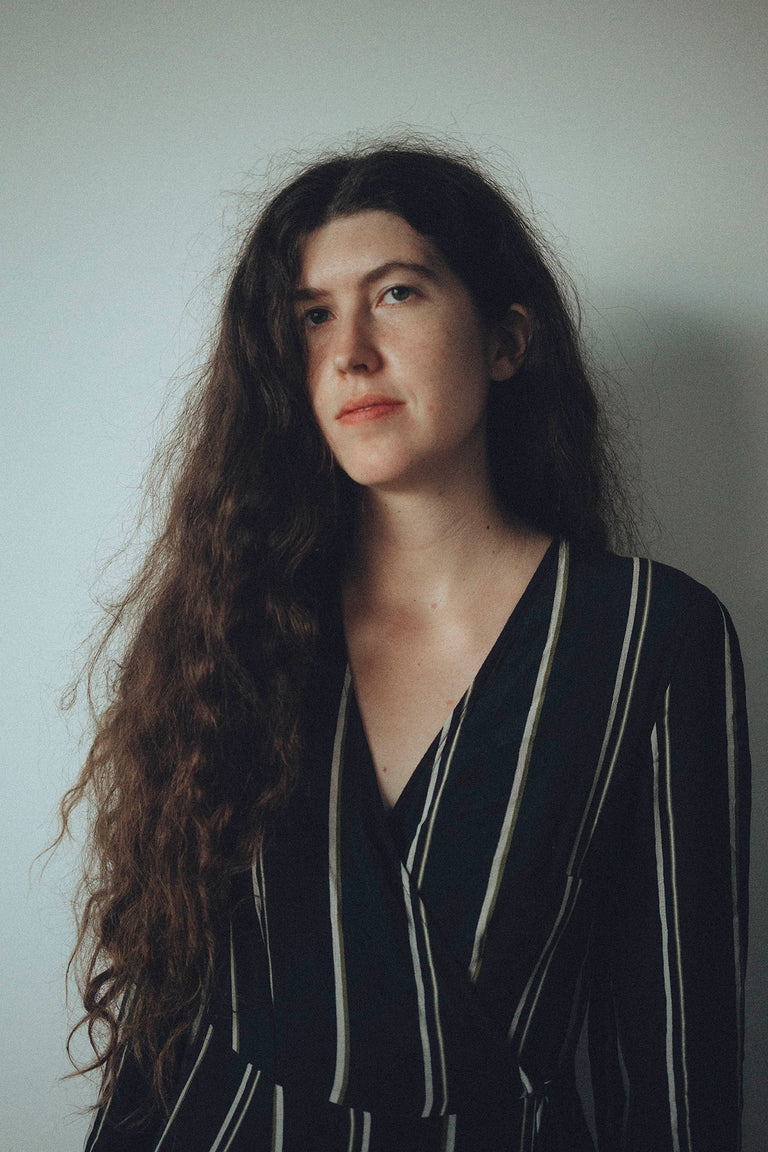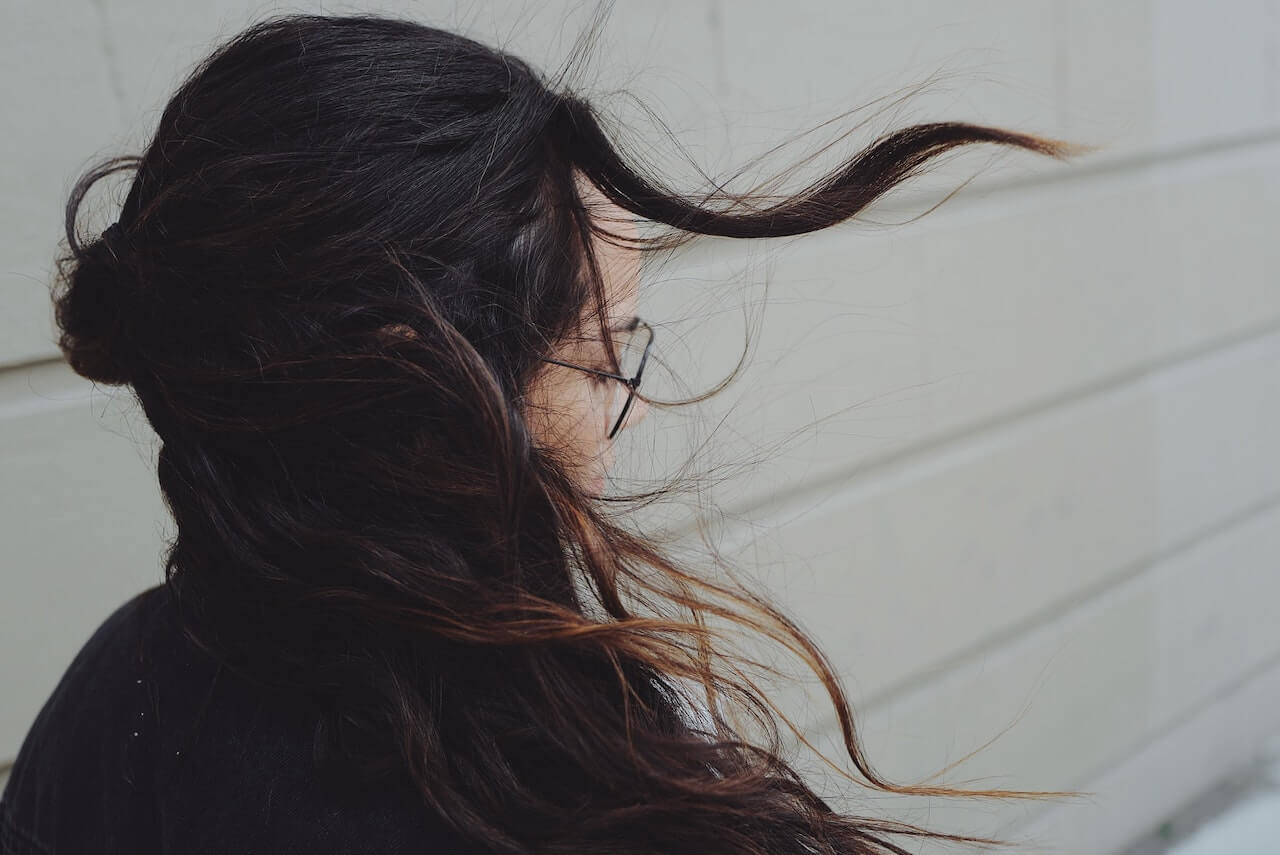We've all been there. You set out for the day with your hair feeling fresh as a daisy, but within a few hours, your strands are weighed down and greasy with excess oils. Oily hair is the worst, and it's frustrating when it takes on a greasy appearance within hours of washing.
Read on to learn about some of the most common causes of excess sebum and increased oil production — plus, what you can do to get rid of greasy hair ASAP.
#include-related-slider#
Causes of Greasy Hair
As annoying as an oily scalp can be, your scalp produces natural oils in order to help grow and maintain healthy hair. The natural oil produced by the scalp coats hair strands, helping the hair cuticle stay soft and hydrated.
Oily buildup, however, is the sign of an imbalance, which can lead to more sebum collecting and choking the hair's roots. Here are some causes that might be at the root of your oil buildup.
Shop: Sulfate-Free Shampoos for Oily Hair
Not Washing Hair Enough
In general, experts recommend you wash your hair three to four times a week — or as often as once a day if you have naturally oily roots. "Not having a regular washing cycle for your hair or shampoo cycle is damaging," says board-certified dermatologist Anna Chacon. "If you need to wash more often, such as once a day, that is also OK, according to the American Academy of Dermatology."If you don't wash your hair enough, it can cause excessive sebum production, leaving hair greasy and weighed down."
Overwashing
Depending on your hair type, overwashing can be just as bad as underwashing. "Overwashing or underwashing hair can both lead to greasy hair," said Dr. Chacon. "Curly hair is particularly prone to dryness at the hair shaft from over washing, causing your sebaceous glands to kick into high gear. You might temporarily experience increased oiliness as hair adjusts, but it should improve within a few weeks."
Shop: Dr. Neera Nathan's Top VEGAMOUR Picks
Using Too Much Product
It's tempting to use products to try to cover up oiliness, but Dr. Chacon cautioned that overconditioning your hair may lead to a greasy appearance. Slathering on gobs of oil-based conditioners or smoothing treatments will only make your situation worse and can cause even more oil to build up and seep through your carefully styled hair to create an oily mess.
Smothering Your Roots
It's not just conditioner that can lead to buildup. "Acquiring the wrong products on the scalp is a major no-no," said Dr. Chacon. "Avoid using oil products on the root of the scalp. In addition, sometimes products buildup on the scalp, which needs a detox therapy."
Thinning Strands
Of all the hair types, people with thin hair are the most likely to suffer from excessive oiliness. This is because there is less hair but still the same amount of oil from the scalp. One solution is to use GRO Hair Serum to get thicker, fuller-looking hair that doesn't get greasy as quickly as thin hair does. With daily use of this plant-powered, volumizing serum, you can see results in little as 90 days!
How to Avoid Greasy Hair
Now that you know some of the most common causes of greasy hair, here are some great ways to avoid it.
Step Up Your Wash Day Game
While there are plenty of drugstore shampoos that are marketed as "clarifying shampoo" or purifying shampoo" be careful. While you might resort to them in desperation because you want to feel free of oil once and for all, using harsh chemicals as part of your regular wash day can actually cause hair to produce more oil.
"It's important to shampoo properly and condition carefully," said Dr. Chacon. "Focus more on the ends and the roots, and go natural in terms of products and styling. You may also choose products that are specifically formulated for oily hair."
A dried-out scalp will struggle to maintain equilibrium, kicking into oil-producing overdrive. Using the right shampoo and conditioner can make all the difference. GRO Revitalizing Shampoo & Conditioner Kit, which contains powerful phyto-actives, can help gently remove excess oil while restoring balance to your scalp.
Use Dry Shampoo
As anyone who struggles with oiliness knows, a good dry shampoo is the secret to eliminating excess oil buildup before it shows on your strands. Dry shampoos absorb oil from the scalp, getting rid of greasy roots that can weigh down the hair and give it an oily, flat appearance. You can even toss an extra can in your purse for an on-the-spot touch-up as your scalp readjusts to your new hair routine.
Detoxify Your Scalp
If you're guilty of using a lot of products, the buildup is real. And adding a scalp detox treatment, such as GRO Scalp Detoxifying Serum, to your routine can help clear the way for healthier, less greasy strands. Not only does the serum remove the buildup of sebum and excess product from the scalp that can cause hair to have an oily appearance, but it also helps stimulate the roots of your hair for an overall healthier appearance.
Avoid Oily Styling Products
Style with a light hair foam instead of heavy creams or oils to keep strands fresh. Eliminating heavy, oily products and replacing them with formulations designed to boost hair wellness will help keep hair from taking on a greasy look and keep your scalp happy and healthy all week long.
Try a DIY Solution
For an easy at-home solution, try apple cider vinegar. After applying shampoo and conditioner, try washing your hair with a mixture of ACV and water to absorb excess oil. Rinse the mixture through, scrunching and scrubbing to soak deep into oil-clogged strands, removing buildup from your scalp and throughout the hair. Repeat this treatment once a week, along with your usual wash day routine, until you see results.
See a Dermatologist
If none of these solutions help, and excess oil buildup persists, it might be time to consult a professional. A good dermatologist can assess the condition of your hair and scalp and give you a prescription for medical strength solutions like a shampoo that contains salicylic acid if necessary.
#include-related-slider#
You Can Control Greasy Hair
Les oily hair is possible and usually can be solved by making a few simple changes in the way you care for it. However, be patient as you implement these changes; it can take some time for your hair to adjust to the new normal as your scalp microbiome comes back into balance and oil production levels drop. The good news? With a bit of effort, your greasy strands will soon be nothing more than a distant memory!
More From VEGAMOUR
- Is Sweat Good for Hair?
- Oily Scalp But Dry Ends? Try This
- How to Get Rid of Greasy Hair
- 10 Unexpected Ways to Use Dry Shampoo



















